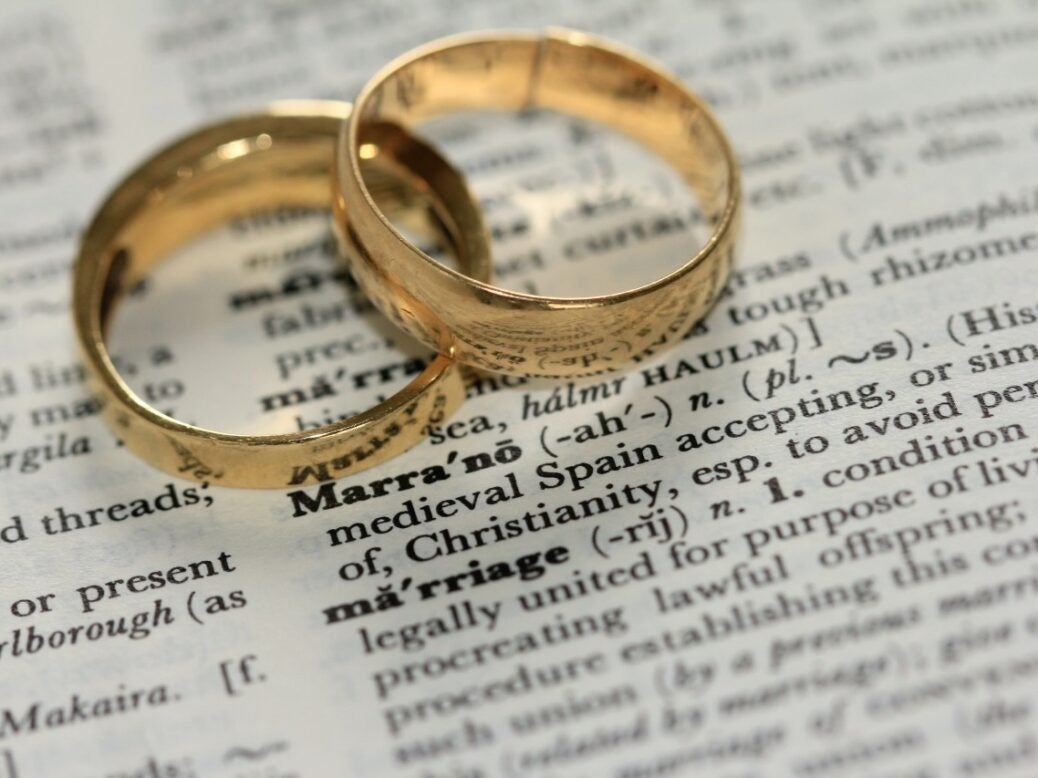
Family law can involve sensitive issues such as relationship breakdown and children, so the courts are not necessarily the best place to resolve them. Divorce mediation, therefore, is designed to help families come to an amicable agreement outside of the justice system. Forsters’ Jo Edwards explains why the process helps families avoid contention.
What is divorce mediation?
Mediation involves a divorcing couple appointing a third party (a mediator) to intervene in a dispute in order to try and resolve it outside of court. They are seeking to avoid litigation – the process of taking legal action. The issues discussed could be anything that arises from a relationship breakdown, including shared finances and children.
Divorce mediation is a voluntary process – it cannot be ordered by the court (although the court can suggest that a couple explore mediation). It is also, crucially, a confidential and privileged process, says Forsters solicitor Jo Edwards.
‘The couple is effectively coming into a safe space,’ she says. ‘Even if court proceedings are going on in the background and the couple are wary of sharing their hand, thinking [their spouse’s] solicitor is going to rely on this… I can say to them, no, this isn’t up for discussion in solicitor correspondence or in court.’
The ‘safe space’ allows couples to brainstorm solutions to their disputes without fear that anything they say will be held against them in legal proceedings, which in turn allows them to come to agreements that they might not have otherwise been able to.
For example, Edwards is currently conducting mediation with a couple who are having difficulties over children arrangements. There’s litigation ongoing, but through mediation they are exploring the possibility of international relocation.
‘Had they just carried on in litigation, I don’t think that would ever have been explored. In mediation they can be a bit more creative and look at different avenues, knowing that if those avenues come to nothing, they’re not going to be hit with that in the court process.’

What are the benefits of divorce mediation?
The first benefit of mediation is that it provides couples with the freedom and autonomy to be creative in finding solutions, and therefore often yields better outcomes than the court process.
The best family lawyers for high-net-worth clients
With divorce mediation, you can also ‘road test’ arrangements. For example, if a couple is thinking about having alternative weekends with their child after divorce, or trying to figure out what interim maintenance payments are appropriate, they can try it out before committing to anything.
‘Court is quite a blunt tool,’ says Edwards. ‘A judgment is imposed and that’s it. Through mediation I can say to couples, why don’t you go away for a month and see how this goes on the ground, and then come back to me? And if we need to tweak it, we can tweak it.’
Some people worry that they are legally unsupported through the mediation process, but this is not the case. Lawyer-inclusive mediation is becoming a lot more prevalent, and even if solicitors aren’t physically present, Edwards will always stop her clients and let them know whether they should seek legal advice on a particular point. Plus, crucially, any agreement reached in mediation isn’t binding until the couple wants to be.
Finally, avoiding entering the chronically overstretched court system saves a huge amount of time (and money). ‘The family justice system is absolutely creaking at the seams, and it’s gotten worse with the pandemic,’ says Edwards. ‘I’m seeing my clients having to wait months and months for their first hearing.’
Who should use divorce mediation?
Edwards heartily recommends mediation in almost all cases and wants to remind people that ‘it’s never too late to mediate’ – even if court proceedings are already underway. ‘There was one couple about three weeks away from a contested final hearing, and they came to me for mediation and made significant progress in narrowing issues.’
The best divorce consultancy and support service providers for high-net-worth clients
There are, however, instances where mediation might not be appropriate. For example, mediation would not work in cases where there has been domestic abuse. This is firstly due to concerns about the safety of bringing the couple together, although this is ameliorated slightly in the digital age where mediation is being conducted over video call. But there may still be issues over the imbalance of bargaining power.
Edwards also ‘wouldn’t do mediation where there are issues of children’s welfare and safeguarding’, due to the need for other bodies and agencies to weigh in.
‘On the money side of it,’ Edwards continues, ‘if I had any concerns that [one of the couple] hadn’t been honest in their financial disclosure, I’d consider whether mediation is the right process. Complete transparency and openness are key.’
Within mediation, she explains, there is no power to compel somebody to produce financial disclosure, so if a spouse is unwilling to do this voluntarily, she will not take on that mediation. ‘It’s not an opportunity to try to avoid your duty of full and frank financial disclosure.’
![‘What I can say, hand on heart, is that [mediation] is considerably cheaper than contested litigation,' says Edwards](https://www.spearswms.com/wp-content/uploads/2021/07/bill-oxford-OXGhu60NwxU-unsplash.jpg)
How much does mediation cost?
The cost of divorce mediation depends on how long the process takes. On average, issues will take three to five sessions of 90 minutes to 2 hours hours to resolve. If couples have multiple issues to discuss, like children and finances, then it may take longer.
The length of a mediation will also depend on what stage in proceedings the couple are at when they start. Some may embark upon mediation as their first port of call, whilst others will have spoken to solicitors, done financial disclosure, and ‘really want to get down to the nuts and bolts of negotiations when they come to see me’, says Edwards.
Most mediators charge an hourly rate which, for London law firms serving HNW clients, can range between £350-£550 per hour.
‘But there is a lot of work I do in mediation that I don’t charge clients for, like screening intake calls at the start, routine emails back and forth. I charge for the mediation sessions themselves and any summaries,’ says Edwards.
‘What I can say, hand on heart, is that [mediation] is considerably cheaper than contested litigation, which can run on for over 18 months with all the associated costs, both financial and emotional,’ she continues.
What happens if mediation fails?
Other measures to stay out of court include private FDRs (financial dispute resolution) – these are non-binding indications of what the financial outcome of a case will be should it go to litigation, and can go a long way in informing a couple as to whether it’s worth it.
‘If [mediation] is really not going to work, I will always signpost on to arbitration,’ says Edwards. Arbitration also keeps disputes out of the courts, but is a different process. Both parties put their case to an independent person called an arbitrator, who will then come down on one side or the other.
Where can I find out more about divorce mediation services?
The Spear’s 500 has compiled an indispensable guide of private client family lawyers and support service specialists who can assist with matters of mediation. We’ve curated the list through our independent research process.
Read more:
What is wealth management and how can it help?
The best family lawyers for high-net-worth clients
The best family law barristers for high-net-worth clients
The best divorce consultancy and support service providers for high-net-worth clients
The best divorce litigation funders for high-net-worth clients
The best US family lawyers for high-net-worth clients









